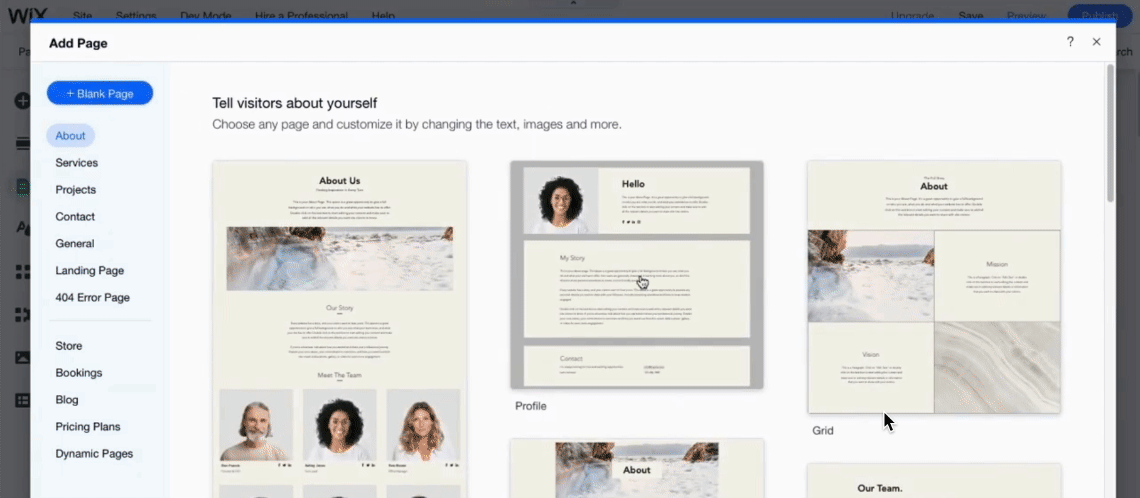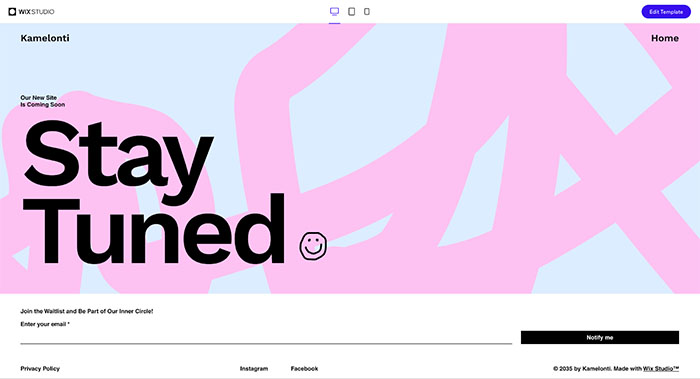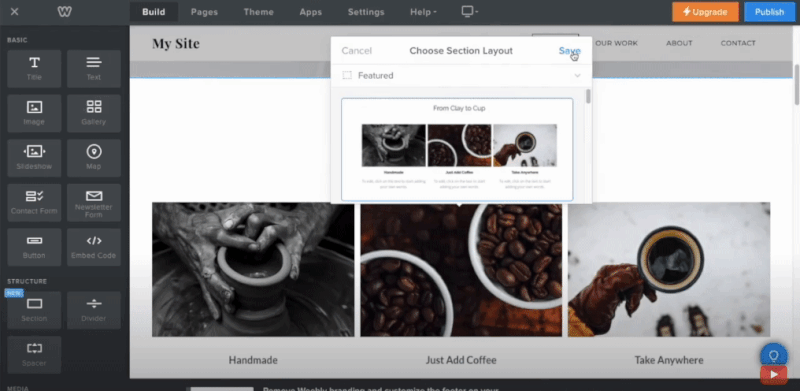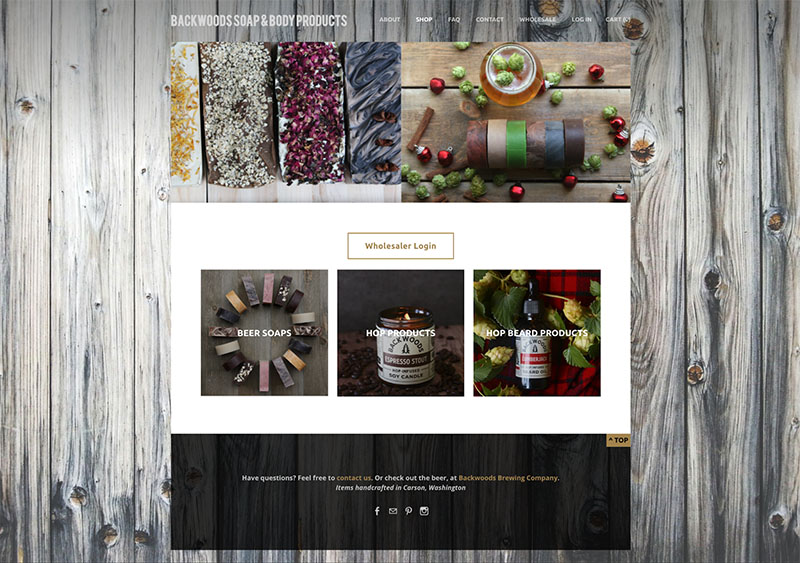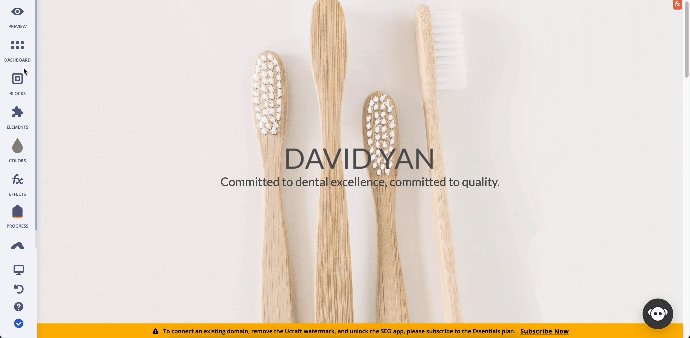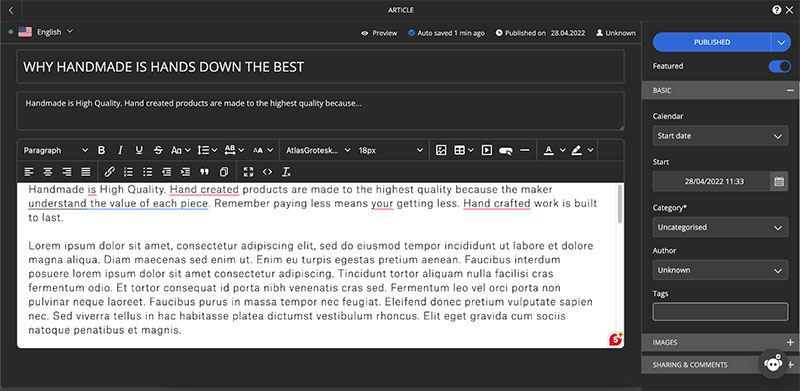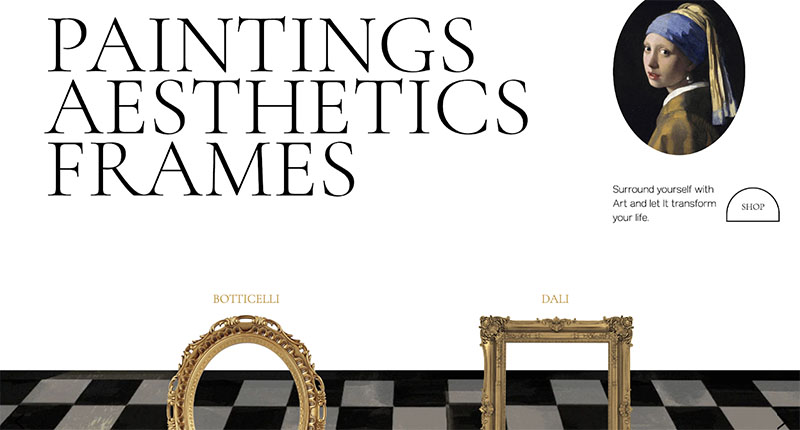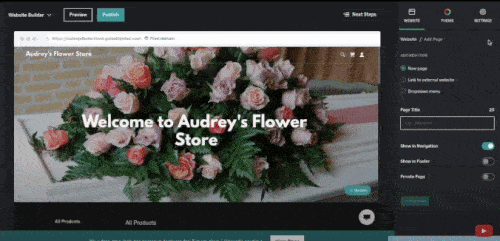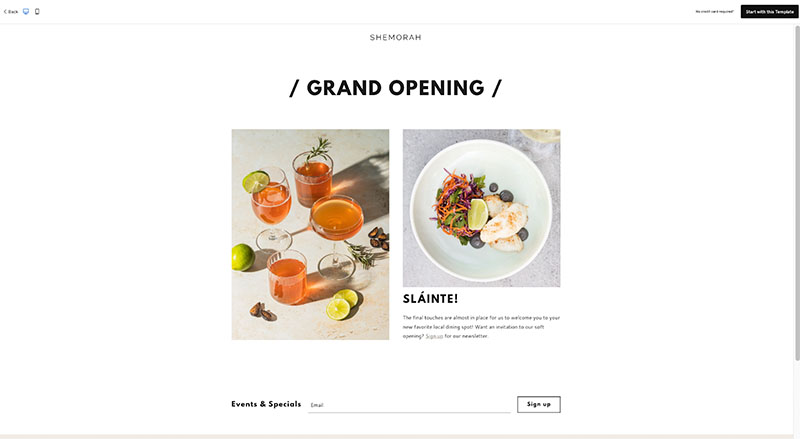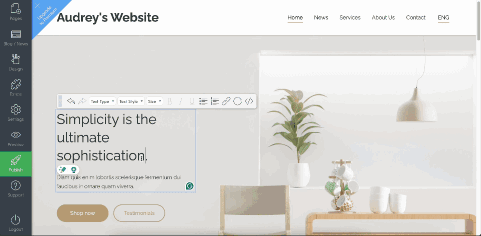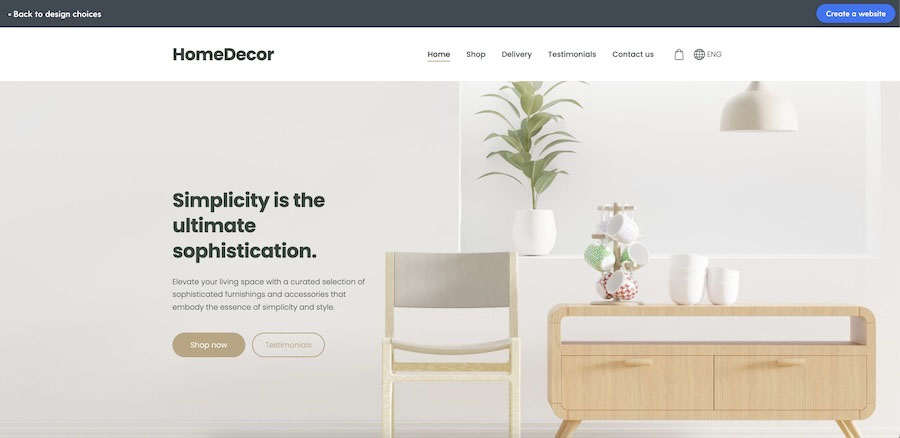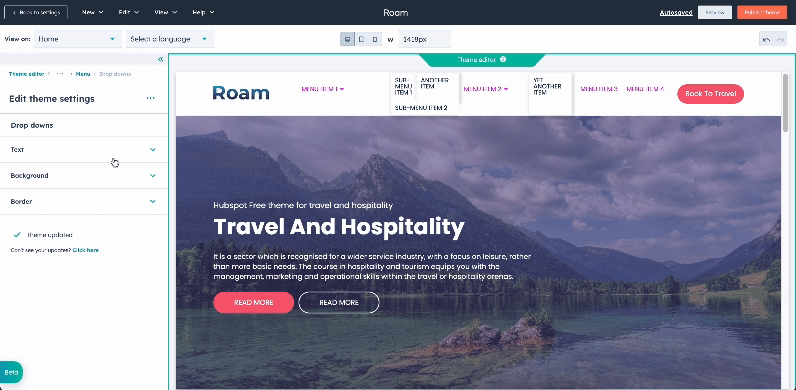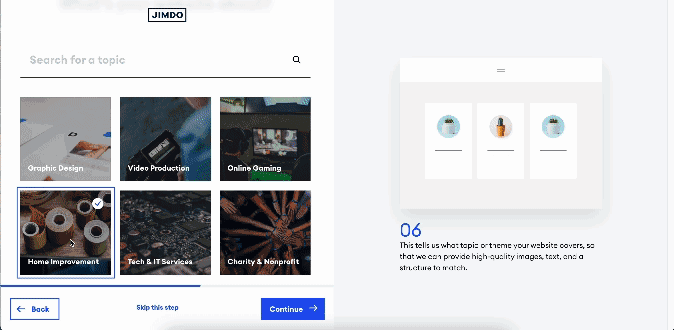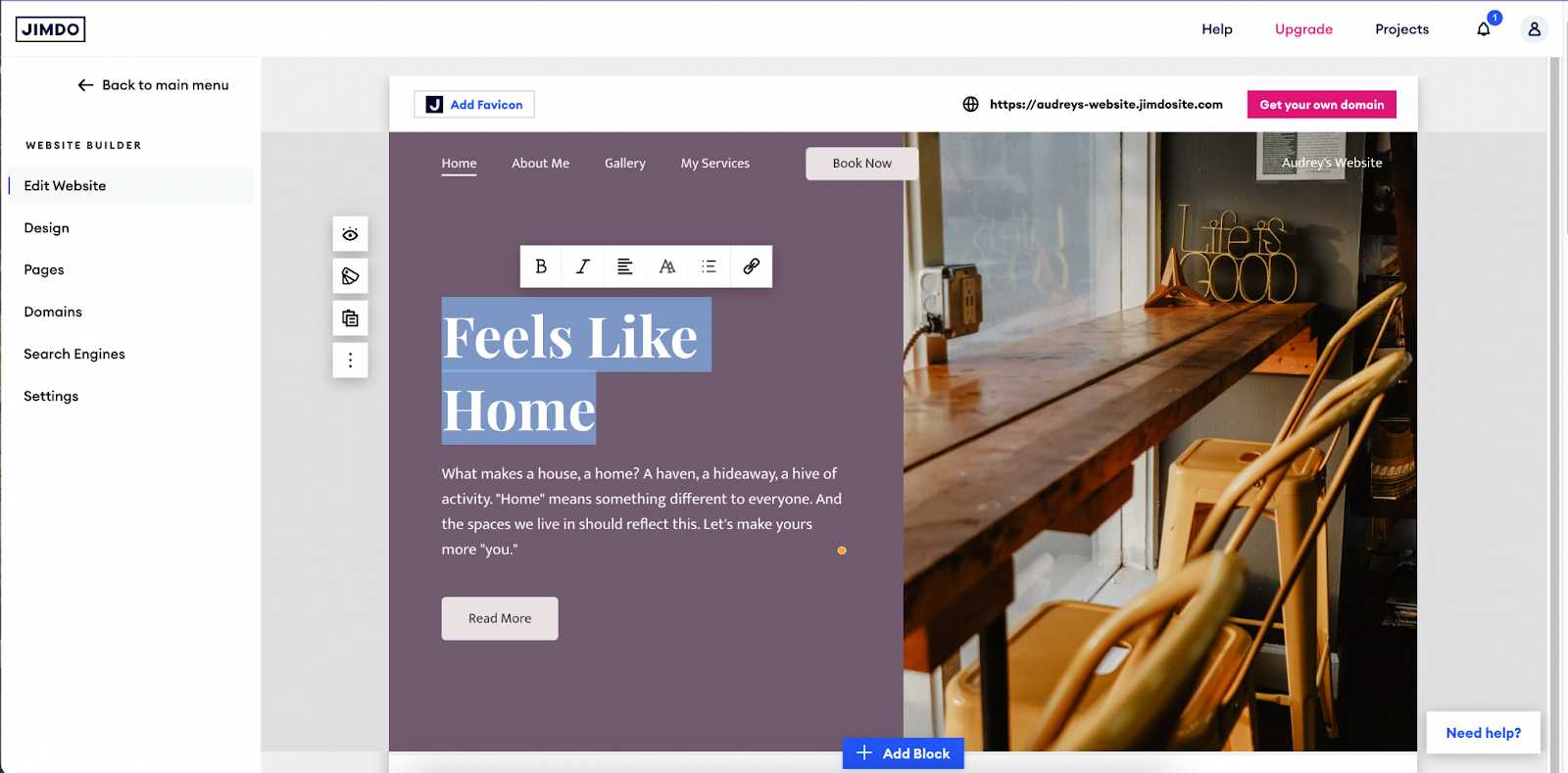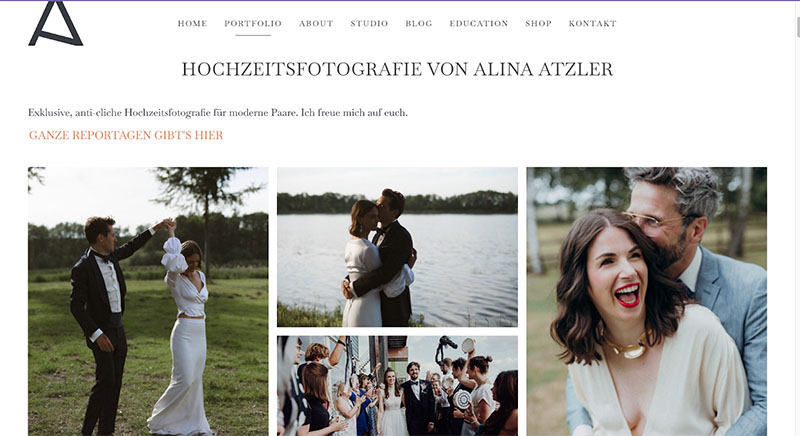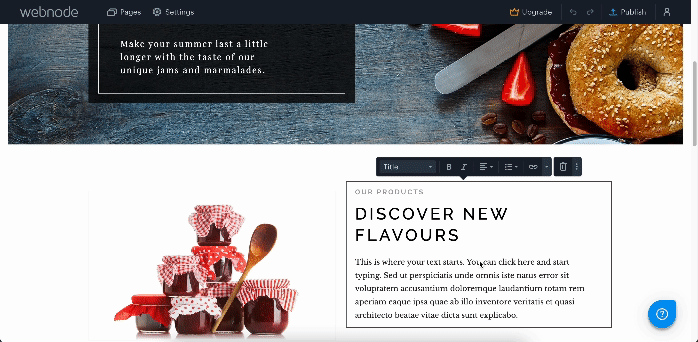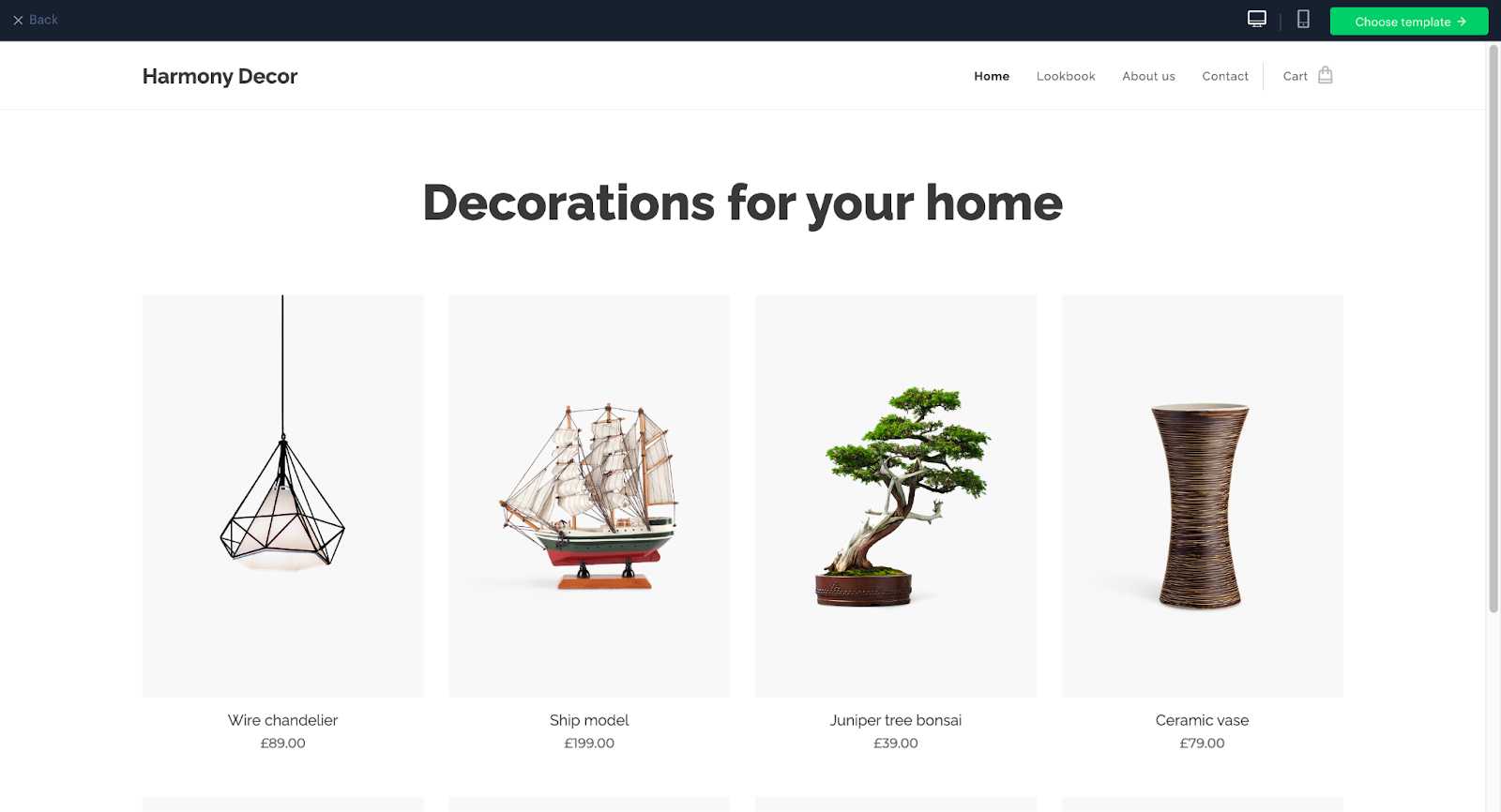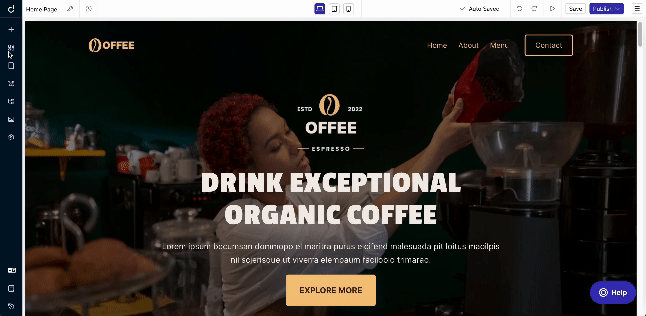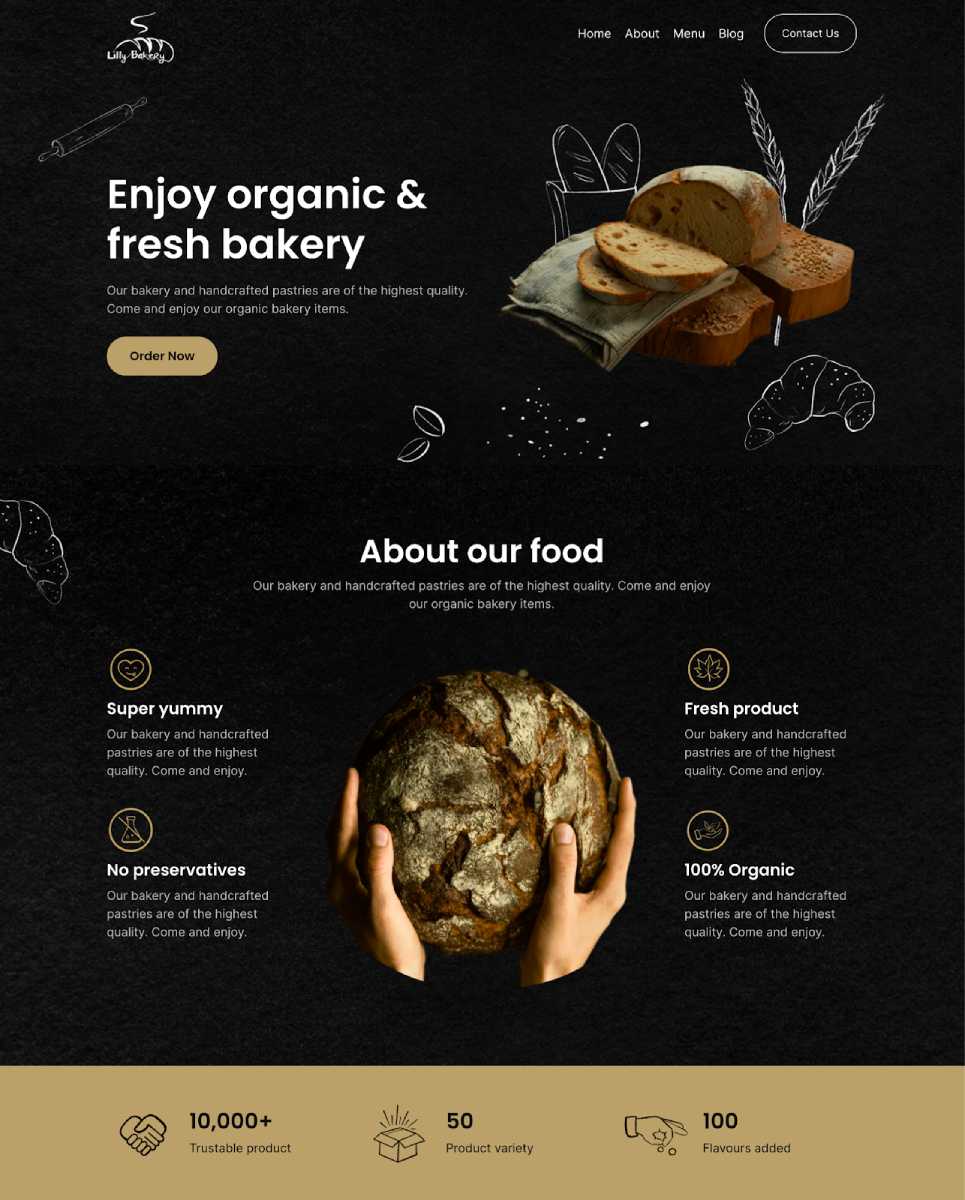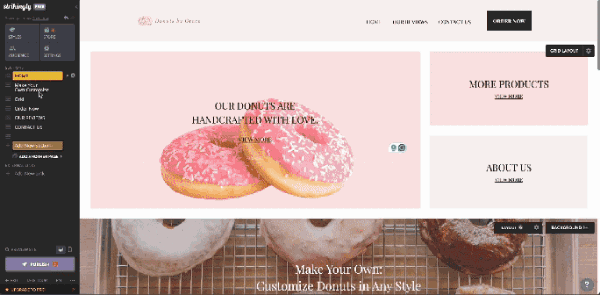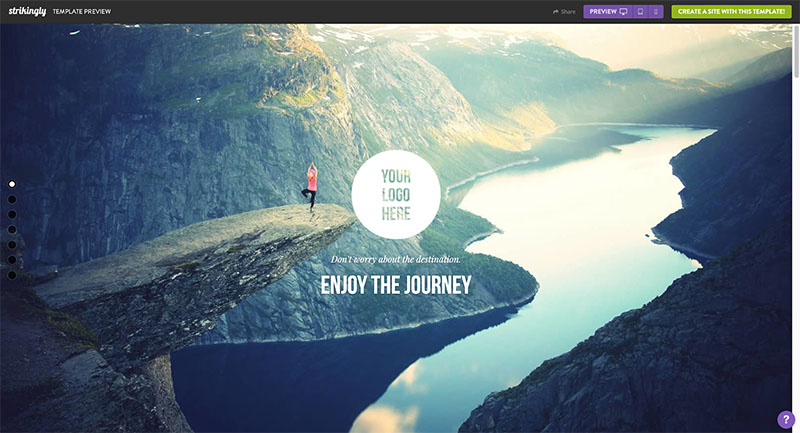Knowing how to market your business in the digital age also means knowing how to build a good website for it. Personally, I love building websites, thanks in good part to the many easy-to-use website builders available today. All I do is build up a general plan for my website structure and user journey, and then build, design, and publish the website—even without any coding experience.
Another reason I can design professional websites easily is because many website builders have 100% free starting plans, which is a significant benefit for any small business owner. And if you’re looking to build a website for your business (which you should) but are worried about budget constraints, I’ve outlined my 11 top picks for the best website builder for small businesses, along with their features and who they’re best for. Find out more about them below.
- Wix: Best free website builder for small businesses overall
- Weebly: Best for free ecommerce websites
- Ucraft: Best for blogging
- GoDaddy: Best for appointment-booking features
- Mailchimp: Best for built-in email marketing
- Mozello: Best for beginners
- HubSpot Content Hub: Best for building a free website on your domain
- Jimdo: Best for portfolio websites
- Webnode: Best for fast website design using templates
- Dorik: Best for multiple free websites
- Strikingly: Best for one-page websites
Best Free Website Builders for Small Businesses at a Glance
Free Site Builder | Expert Score Out of 5 | Ecommerce on Free Plan | Starting Cost of Paid Plans* | Best Features |
|---|---|---|---|---|
4.93 | ✕ | $17/month | Ease-of-use; 900-plus website templates | |
4.74 | ✓ | $10/month | Ecommerce on the free plan | |
4.42 | ✓ | $14/month | Blogging tools | |
4.39 | ✕ | $10.99/month | Appointment-booking tools | |
4.32 | ✓ | $10/month | Built-in email marketing | |
4.22 | ✓ | $8/month | Beginner-friendly platform | |
4.04 | ✕ | $15/month | Use your domain for free | |
3.92 | ✕ | $11/month | Visually forward automatic website generator | |
3.71 | ✕ | $4.50/month | Diverse collection of modern templates | |
3.61 | ✕ | $18/month | Build multiple websites on the free plan | |
3.61 | ✓ | $8/month | Templates for one-page websites | |
*Monthly plan cost with annual billing; may renew at a higher rate.
Keep reading to learn more details about each free small business website builder and what you can get from them:
Wix: Best Free Website Builder for Small Businesses Overall
Free Plan Features
- A drag-and-drop website builder with over 900 templates
- Page, image, and site-level SEO settings
- Connect Semrush for keyword research
- A Wix subdomain (e.g., yoursite.wix.com) and Wix branding
- 500MB storage and bandwidth
- Free SSL
- Wix AI copywriter and image generator
- Ability to embed code in headers, footers, and widgets
- Auto-image compression and schema markup
Wix’s paid plans start at $17 and go up to $159 monthly. These allow ecommerce features, a custom domain, more bandwidth, online ordering and reservations, and advanced analytics.
If this is your first time building a website, the best free business website builder I recommend the most is Wix, for several reasons. First, its drag-and-drop editor gives you the most control over your site’s design, and it’s very easy to use even if you have zero design experience.
You’ll simply need to click and drag elements around to design your site, and you can even start with a template (there are over 900 to choose from, and they’re all well-designed). Or, you can use Wix’s AI website builder, which can generate a website based on your preferences—you’ll only need to answer a few prompts.
Secondly, Wix sites already have search engine optimization (SEO) features built in, which help your site rank higher on Google results and get discovered by users. It can also connect you with Semrush for easier keyword research. If you upgrade to a paid plan, you can also build forms, set up appointments, and sell products on your website.
Our Expert Opinion
Wix is the best free website builder for small businesses wanting design freedom, solid SEO, and all the essential marketing tools to grow their website. If you’re starting out building your online presence, this is our top-recommended website platform. It has all the essentials to get you started, and upgrading to a paid plan gets you many more integrations and capabilities.
Weebly: Best for Free Ecommerce Websites
Free Plan Features
- Unlimited ecommerce (physical goods) with Square payment processing
- Inventory management
- A Weebly or Square subdomain (e.g., yoursite.weebly.com)
- Weebly and Square branding
- 500MB of storage, unlimited bandwidth, free SSL
- In-store pickup with online ordering
- Automatic sales tax calculator
- Coupons and gift cards
- Lead capture forms
- Ability to embed code
- Page, image, and site-level SEO settings
Weebly’s paid plans start at $10 and go up to $26 monthly. They allow unlimited storage and bandwidth, a custom domain, digital products and memberships, ecommerce insights, and abandoned cart emails. Find out more on Weebly’s website.
If you want to build an online store and sell your products or services at no cost, Weebly is the best small business website builder. Its free plan lets you sell unlimited products (physical products only; you’ll need to upgrade to sell digital products like e-books or audio), take online orders, manage inventory, offer coupons and gift cards, and calculate sales tax automatically.
Weebly also has dozens of templates for various website types. Although it’s nowhere near as many or as well-designed as Wix’s, it’s still professional enough for any business. Its editor is section-based, so design customization is also more limited. However, a big plus is that you can swap out your theme anytime without losing all of your previous work, unlike most other platforms.
If you need a simple online store website with the flexibility to easily change templates, it may be a faster way to get your business online. Find out more about how to make a website on Weebly.
Our Expert Opinion
None of the other top website builders for small businesses come close to matching the ecommerce tools you get for free with Weebly. Sell services and products, and even accept donations, all on the free plan, and then upgrade to a paid plan for even more capabilities.
Ucraft: Best for Blogging
Free Plan Features
- Website builder with up to five pages
- Over 120 design-forward templates
- CMS with blog publishing
- Ecommerce for up to five physical products
- Local shipping
- Abandoned cart recovery
- SSL security
- Website published on a Ucraft subdomain and Ucraft branding
- Website analytics
Ucraft’s paid plans go from $14 to $125 monthly. They allow custom domains, a fully branded site, more website pages, store products, blogs, up-selling and cross-selling, discounts, and email tools.
There are a couple of instances where Ucraft should be your go-to. First, it’s one of the only free website builders with a CMS, SEO, and ecommerce in the free version. Granted, you’re only allowed up to five pages and five products, but they’re enough to establish an online presence for your brand.
Also, Ucraft’s templates are modern and visually impactful (they’re also some of my personal favorites). They’re even comparable to Squarespace’s, but at a fraction of the cost (even at no cost). Ucraft was built by designers, which shows in the sleek, modern look of its templates and content blocks, so it’s overall one of the most design-forward platforms to build your website on.
Ucraft’s editing platform, while not a drag-and-drop one like Wix’s, is also easy enough to navigate. Publishing blogs is also a simple matter of typing or pasting in your content and then hitting “Publish.” You can also add images, embed videos, and edit your fonts and text properties.
Our Expert Opinion
If you want to build a modern website you can blog on, Ucraft is the worthiest entry. Not many free website builders have the triple combo of blogging, SEO, and ecommerce on their free plans, but Ucraft does. Its templates are also some of the most design-forward, and if you want to expand your blogging and online store, upgrading to a paid plan is worth the extra features.
GoDaddy: Best for Appointment-booking Features
Free Plan Features
- Website appointment booking
- Website chat
- Connect and manage Facebook, Instagram, Twitter, Yelp, and Google profiles
- A GoDaddy subdomain (e.g., yoursite.godaddy.com)
- GoDaddy branding
- Free SSL security for data encryption
- Social media scheduling
- Limited access to GoDaddy Studio for content creation with content templates
GoDaddy’s paid plans start at $10.99 and go up to $20.99 monthly. They allow features like website SEO, online payments, social media ads management, social selling, and more email marketing.
GoDaddy’s appointment-booking tools, website chatbots, and online listing features on the free plan make it the best place to build free websites for small businesses offering services, for example, salons or real estate agents. You can connect your Yelp and Google listings and up to three social media profiles and manage them from the dashboard. This is a significant benefit, as most audiences are active across multiple digital platforms.
Another of our favorite things about GoDaddy is that it’s super beginner-friendly. The platform makes it nearly impossible to mess things up; your template is automatically generated, and you can easily switch the look of your site with theme variations without having to start all over.
Its websites also have chatbots that make it easy to communicate with visitors. However, since it isn’t a drag-and-drop editor, design customization can be limited. Learn more about how to build a website with GoDaddy.
Our Expert Opinion
If your operation is service-based or sales-oriented, GoDaddy is the best free website builder for your small business, thanks to its appointment-booking and business listing tools. Clients can book appointments or set up sales demos, and chatbots interact with site visitors 24 hours a day to increase engagement and conversions—all in the free plan.
Mailchimp: Best for Built-in Email Marketing
Free Plan Features
- Free website with unlimited pages and bandwidth
- Website hosted on a Mailchimp subdomain, with Mailchimp ads
- Email newsletters and automated drip, transactional, and behavior-based email marketing
- Cart abandonment, order confirmations, shipping, and tax configuration
- Marketing CRM tool
- Social media posting
- Design studio with stock images
- Integrations with 300-plus apps
- Ecommerce
- Free stock image library
- Site and sales analytics
Mailchimp’s paid website plan costs $10 monthly. It allows a custom domain and branding, 24/7 support, and up to three users. Otherwise, you get the same features as the free plan.
Mailchimp is the best free website builder for small businesses that want to quickly build a contact list through paid ads, organic search marketing, and most of all, email marketing. You might know Mailchimp best for its email marketing software, which is still highlighted in its free website builder. The free plan lets you send email marketing campaigns (even automated campaigns), build landing pages and popup forms, and even access its CRM tool.
Mailchimp’s websites also have unlimited pages, making them a good option if you need a large website. It also has a content studio and stock photography, which are helpful for marketing. However, its editing platform isn’t as full-featured as others like Wix. Instead, it’s best suited for making simple landing pages, for instance, to support your email campaigns. It also doesn’t have any website templates, and your free site will be published on a Mailchimp domain.
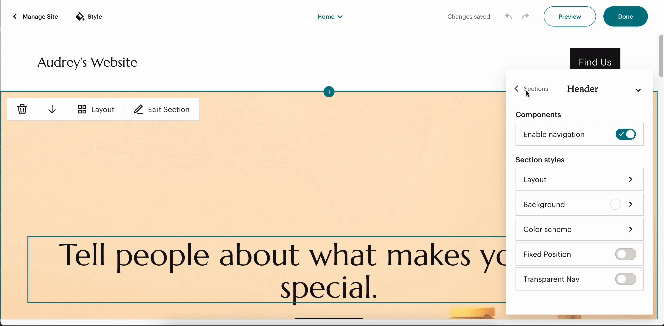
On Mailchimp, you’ll build your website section by section instead of starting with a template.
Our Expert Opinion
Mailchimp offers a beginner-friendly, all-in-one solution for building a simple website, including email marketing, ecommerce, and contact management—all starting for free. However, since its design tools are quite basic, it’s not the best option for building your brand. I recommend it best if your objective is to generate leads, say for event or newsletter signups. With unlimited pages, you can also use it to build landing pages.
Mozello: Best Free Website Builder for Beginners
Free Plan Features
- Drag-and-drop website builder with 48 mobile-friendly templates
- Hosted on a Mozello subdomain (e.g., yoursite.mozello.com)
- Displays Mozello branding
- Ecommerce for up to five products
- Payments via cash, PayPal, and bank transfer
- 500MB storage and unlimited bandwidth
- Free SSL security for data encryption
Mozello has two paid plans. One costs $8 and the other costs $16, making it one of the most affordable options, even beyond the free website builder small businesses can use. Upgrading to a paid plan gets you more storage space and products on your online store, emails, discount coupons, and more payment options.
Mozello’s ease of use makes it a great choice for beginners who want to build a free business website. Because you get ecommerce capabilities in the free version, it’s also the best free website builder for small business owners who only have a few products to sell (for instance, if you’re starting up a side business). And if you want to sell more than five products, upgrading is also generally affordable—its highest paid plan costs no more than $16.
I also found Mozello to have the most intuitive and beginner-friendly interface. This allows for fast, frustration-free website design, even for beginners. And while it doesn’t have as many templates as Wix or Webnode, those available cover a variety of industries and design styles and are professional-looking enough for any business.
Our Expert Opinion
I’ve tested many site builders, and Mozello is one of the easiest to use overall, making it a great option for beginners. Plus, it’s one of the few to provide ecommerce tools even on the free version. This makes it a cost-effective and user-friendly option, even though it falls short in its template designs and marketing features. It’s still a worthy candidate for a fast, easy, and free business website builder.
HubSpot Content Hub: Best for Building a Free Website on Your Domain
Free Plan Features
- Free website on your own domain (but displays HubSpot branding)
- Free SSL and web application firewall (WAF) for security
- 30 web pages, 100 blog posts
- Basic reporting dashboard and site analytics
- Automated emails and ad retargeting
- Multi-language sites
- SEO recommendations and optimizations
- Content delivery network (CDN) for fast loading from anywhere
- Easily connect HubSpot tools
- 24/7 security monitoring and threat detection
HubSpot’s paid plans start at $15 monthly, which gives you a fully custom site with no HubSpot branding, more marketing features, and ecommerce. After that, its higher plans cost $450 and $1,500 for dozens more features and analytics more suited to bigger teams.
When it comes to website creation for business use, having a custom domain is one of the most vital parts because it increases your business’s credibility. However, this isn’t something most free website builders offer—the one exception (so far) is HubSpot Content Hub. With it, you can build a website with a custom domain completely free of charge, provided you already own a domain.
Another plus with HubSpot Content Hub is that all its websites easily integrate with other HubSpot tools, like its CRM platform, its operations hub, and hundreds of other apps in the HubSpot marketplace. You also get enterprise-grade security, so you can ensure data and site visitor security. Its SEO features are also advanced enough to rival Wix’s.
It also has hundreds of website templates in its marketplace, although looking through them all will take time because they’re all user-uploaded (but still all professional-quality). Learn more about how to build a HubSpot website.
Our Expert Opinion
HubSpot Content Hub is the best way to build a free business website on your own domain. Plus, its world-class tools for sales, customer support, and marketing make it suitable for nearly any type of business in any industry. Even on a free plan, you’ll have access to tools for contact management, lead generation, commerce, chatbots, and many more.
Jimdo: Best for Portfolio Websites
Free Plan Features
- Website generator with up to five website pages
- Image libraries
- Contact forms
- 500MB storage and 2GB bandwidth
- A Jimdo subdomain and ads
- HTTPS Security
Jimdo’s paid plans cost $11 and $17 a month. They let you use your own domain, add SEO features, and view visitor statistics.
Jimdo doesn’t offer a selection of templates like other website builders. Instead, you answer a series of questions about your business, such as color choices. You also choose the pages you want on your website, as well as features you’ll need, like contact forms or image libraries. Jimdo then takes these answers and creates a customized website to match your preferences.
Overall, the websites generated by Jimdo are visually impactful and professional. And, because of its ease-of-use, simple but visually forward designs, and image libraries, I found it a good option for artists, musicians, and other creatives looking to promote their work online through portfolios. The site generator also makes it easy to build a site customized to your taste.
The one disadvantage is that you won’t be able to fully customize your site from scratch since it’s a generator and not a drag-and-drop editor like Wix, although you can customize details like colors and fonts. If you want to sell online, you can also upgrade to its online store plans, which allow online and social selling.
Our Expert Opinion
Building a simple portfolio site with Jimdo is easy. Answer a few questions to generate your site, customize its colors and fonts, then embed videos from YouTube or Vimeo, create image galleries, and then publish your site. If you want a no-cost, fuss-free website builder that puts your work front and center, Jimdo can do the job.
Webnode: Best for Fast Site Design Using Templates
Free Plan Features
- Free website with unlimited pages
- 100MB storage and 1GB bandwidth/month
- Over 100 modern, professional templates
- Free SSL security for data encryption
- Image descriptions for accessibility
- A Webnode subdomain (e.g., yoursite.webnode.page)
- Displays Webnode branding
Webnode’s paid plans go from $4.50 to $22.90 a month. They allow more storage space and bandwidth, a custom domain, website analytics, and ecommerce features.
Webnode’s sleek, modern templates and highly intuitive editor make it one of the best free website builders for small businesses, but only if you don’t need much storage space or bandwidth. However, if you upgrade to its paid plans, you can get multi-language websites, membership features, and higher bandwidth and storage. On the highest tier, you can even get up to 100 free email accounts for your business.
Along with its modern templates, Webnode offers one of the most intuitive page-building experiences I’ve tried. It’s easy to customize a template and publish your small business website within a few hours, at no cost, and with no need for previous web design or coding experience.
However, its free version doesn’t provide enough storage, bandwidth, or essential ecommerce or marketing features for most businesses. Still, as with Strikingly, if you just need a basic site but want it to look professional and modern, this may be a good enough option.
Our Expert Opinion
Overall, Webnode’s professional and modern templates are genuinely impressive. They make it easy to create an industry-level website in hours, even with zero experience. If speed-with-style is what you’re looking for and you don’t anticipate needing a lot of storage space, Webnode is a capable candidate.
Dorik: Best for Multiple Free Websites
Free Plan Features
- Up to five websites with five pages each
- 80-plus modern website templates
- Publish up to 20 blogs
- CMS
- Website hosted on a Dorik subdomain with Dorik branding
- Contact forms
- Live chat support for the first 30 days
Dorik’s paid plans cost $18 and $39 monthly. They allow an unlimited number of websites, custom domains and branding, more web pages, SEO and ecommerce features, and website memberships.
If you’re looking to build multiple websites at zero cost, Dorik is the best free website builder for small businesses. On the free plan, you can build five websites (on a Dorik subdomain) with five pages per site. You can also access its CMS and publish up to 20 blog posts.
Interface-wise, Dorik is also very easy to use, and its dozens of templates are all modern and well-designed. I found it easy to create a professional-looking website in its drag-and-drop editor, which has section-based settings that let you fully customize your site and even add scrolling animations and gradient backgrounds. Dorik also has an AI website builder that can generate a custom site for you after a few prompts.
Our Expert Opinion
For small websites that don’t need ecommerce or marketing, Dorik’s free plan is a great solution, especially for building multiple websites. However, because its free websites are very basic, we recommend it best for simple sites like resumes or personal blogs, not necessarily for business use. However, you can also upgrade to a paid plan to get ecommerce and membership features.
Strikingly: Best for One-page Websites
Free Plan Features
- Unlimited websites with up to five web pages per site
- Ecommerce for one product
- 500MB storage and 5GB bandwidth/month
- Free SSL security for data encryption
- A Strikingly subdomain (e.g., yoursite.strikingly.com)
- Displays Strikingly branding
- Invite collaborators
- 24/7 customer support
Strikingly’s paid plans go from $8 to $49 monthly. They allow custom domains, higher storage, more website pages and products, memberships, and newsletters.
While not the most intuitive or full-featured free website builder for small businesses, Strikingly does work for specific cases: if you just need a basic business or personal website, you can build one-page websites quickly and easily using one of its templates. Plus, you can also build multiple websites with each paid plan, making it a good option for small agencies or entrepreneurs with multiple businesses.
Start with any Strikingly template, and then edit each section to make it your own. Multiple layout options are available to save you time and work, and you can easily delete or add premade sections. However, a few sections and templates are locked behind paid plans, and it isn’t a drag-and-drop editor. Overall, its templates are also some of the most outdated on this list. On the plus side, you can set up an online store with one product on the free plan.
Our Expert Opinion
Overall, Strikingly is the best free website builder for small businesses needing one-page websites. Although its designs aren’t as up-to-date, it’s still a suitable option for small businesses or small agencies needing a quick and simple one-page website with simple ecommerce tools.
How We Evaluated the Best Free Website Builders for Small Businesses
There are plenty of free website platforms around. To zero in on the overall best free website builder for small businesses, we set our evaluation criteria. For instance, all the platforms above have a free-forever plan for building a professional and 100% functional website. We also considered what you get with these free plans, how easy the platforms are to use, and our own first-hand experience with each platform.
Learn more about our evaluation criteria:
30% of Overall Score
We only considered platforms that offer 100% free-forever plans, no strings attached. We also considered if they have affordable paid plans for when your business grows and your website needs to scale up.
20% of Overall Score
It’s one thing to get a free business website, but what matters is what you get for free. We compared features like storage and bandwidth limits, SSL certificates, site analytics, and built-in tools for marketing and SEO.
20% of Overall Score
Free website builders make building websites quick and easy, but the best ones offer more features that expand your site’s functionality so it brings in more traffic and provides a better user experience. We also looked at how these platforms add more value to their plans with features like appointment-booking tools, chatbots, advanced customization, ecommerce, and more diverse templates.
10% of Overall Score
Free plans don’t matter if a site builder is hard for beginners to use and navigate. We looked specifically for site builders with user-friendly interfaces and customer support for free plan users.
20% of Overall Score
We’ve also personally tested all the platforms above to see if they live up to their claims and genuinely help business owners build a small business website free of charge. We personally vetted these platforms’ features, ease-of-use, and value for each plan.
When to Use a Free Business Website Builder (& Who They’re Right For)
Free website builders are the best way to quickly and easily build your online presence, but that doesn’t mean they’re always the best solution for every case. For instance, most of these platforms publish your site on their subdomain (i.e., yoursite.wix.com), which can hinder your long-term brand credibility. On the other hand, free site builders can be very valuable for personal purposes, or if you’re finding and testing out the best platform for you.
If you’re building a professional website for your business, I don’t recommend using a free website builder as it makes it look unprofessional and untrustworthy. Instead, use free versions to test and build your site, but opt for a paid plan with a custom domain name when you take your site live.
Here are some instances when using a free website builder may or may not be the best option:
Who Free Website Builders Are Right For
Using free website platforms is ideal when you’re determining the best place to build your website. They all display ads, and most are hosted on subdomains, which doesn’t let you fully brand your business. This means they’re best suited for personal purposes or one-time events.
Here are some cases where free website builders are most suitable:
- Independent creatives needing an online portfolio
- Online resumes for job seekers
- Businesses testing the waters with a new business model or product line
- Web design beginners who want to learn more about site building
- Hobbyists needing personal websites or blogs
- Websites for weddings or other one-time events
Websites take longer to rank if they switch from a free domain to a custom domain. This is because you’ll essentially be starting all over on the new domain—and even the age of your domain contributes to rankings, so a new domain will find it more challenging to rank than one that has been registered for a longer time.
Who Shouldn’t Use a Free Website Builder
Free website builders aren’t credible enough for businesses or for professional use in general. Whether you plan to sell services or products, having a completely custom and branded website with no ads and on your own domain is essential to your branding, because your website represents your business in the digital world.
Here are some instances where using a free website is not ideal:
- Any business wanting to build an online presence
- Businesses selling their products or services online
- Businesses wanting to build an SEO content marketing strategy
- Professional freelancers who want to gain leads online (i.e., real estate agents or doctors)
- Bloggers who want to monetize their blogs
How to Choose a Free Website Builder
With so many free website builders available, you’ll need to choose the best one that fits your specific needs. For instance, if you’re a freelancer looking to build a portfolio, you’d probably prioritize having an image library over an online store. Meanwhile, if you’re a business owner, you might want to expand your store’s reach. Both of these require a different set of website features.
Here are other important things to consider when choosing a free website builder for your business:
- Free plan features: This is the most important factor that goes into your choice of website builder. Does the free plan cover your needs? It’s a good idea to have a list of features you need for your website, such as ecommerce tools and SEO features, before choosing a website builder.
- Scalability: Your website builder should also be able to scale as your business grows. In the long run, a free plan may no longer be enough, so you need to consider if the platform’s paid plans are a good fit for your business’s long-term objectives.
- Comfort level: No two website builders have the same difficulty level. Some have automatic AI-website generators, while others require you to build your website yourself, element by element. Also, consider your comfort level with one or the other.
- Design tools: In a similar vein, each website builder’s design features are also unique. Some let you customize down to each element; others only let you edit things like background colors and fonts. Also consider if you need a fully custom and unique site or just a simple design.
Use these factors as a guide to help you choose the best free website builder for your business. Then, read our checklist of 19 website basics your website should have before it goes live and 23 tips on making a good website to help yours stand out.
Frequently Asked Questions (FAQs)
The best way to build a website for free is using a free website builder like Wix, Weebly, or GoDaddy. These platforms have 100% free plans to start, are easy enough for beginners to use, and have well-designed website templates. Many also have useful features like SEO, ecommerce, and other marketing tools. However, the main drawback is that with free plans, your website won’t be hosted on your domain but on the platform’s domain (e.g., yoursite.wix.com).
The best free website builder we recommend for small businesses is Wix. This is because its free plans have built-in SEO features to help it rank on search engines, 500MB storage, and many third-party apps you can integrate into your site. It even has AI tools for content creation. It’s also easy for even complete beginners to use, and you can choose from over 900 professionally designed templates or use its AI-powered website generator.
Yes, GoDaddy has 100% free plans you can start with. These plans have built-in appointment-booking, business listing, and email and social media marketing tools, which can be especially helpful for service businesses like salons and agencies. However, GoDaddy’s site builder isn’t a drag-and-drop editor like Wix’s, which means it has limited website customization, but it can be helpful if you’re a total beginner to website design.
Bottom Line
There are many business website builders around. However, our best free website builder for small businesses overall is Wix, thanks to its built-in marketing features, modern templates for nearly any business, and ease of use. All you need to do is visit the Wix website, select the free plan, and choose a website template or use the site generator. You’re guaranteed to get a professional-looking and fully functional website at no cost.

